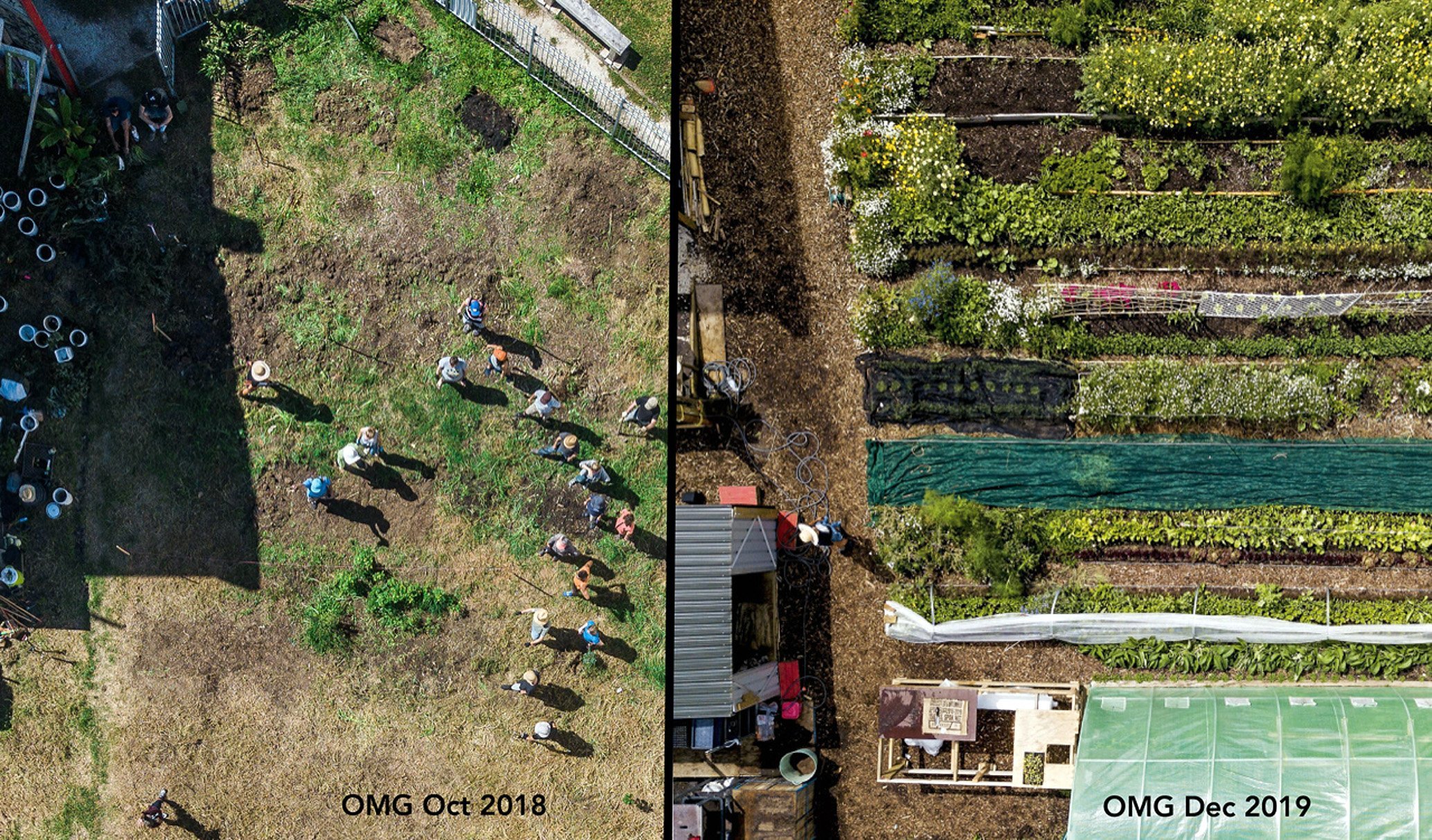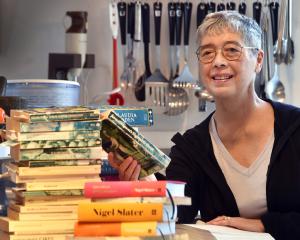

"We are really looking at transitioning a volunteer sector into a sustainable economic sector," Sarah Smuts-Kennedy, vision holder and one of the founders of OMG (organic market garden), an urban farm in Symonds St, Auckland, says.
OMG is under the umbrella of www.fortheloveofbees.co.nz which aims to regenerate the ecosystem via agriculture and the production of food.
"We want to break the myth that industrialised food production is the only way to feed the world," she said.
Now in its third season, OMG employs almost two FTE staff who are paid a living wage, and sells vegetable boxes each week to local subscribers.
It also trains interns in regenerative horticulture, an intensive growing system based on the health of the soil and its biology — the microbes, fungi and worms — which, in turn, grows healthy crops and encourages beneficial insects such as pollinators.
The farm was set up on a derelict inner-city section that had been acquired but not used for a city rail link. Occupying about 330sq m, it turns over about $1400 a week selling vegetables, but this season plans to increase that to around $2000 with the sale of seedlings, compost and education, she said.
A project like this needs seeding finance, but in three to 12 months it becomes self-sustaining, providing jobs, healthy food and repairing the soil system. It recycles local food scraps and organic waste into compost, acts as a heat sink to mitigate climate change and helps councils to meet their biodiversity responses, prevents runoff and generates food security within the local community, she said.
Regenerative agriculture goes further than organic systems, which can use various organic sprays that, although less harmful than conventional sprays, affect all insects or fungi both beneficial and detrimental.
"When we’ve repaired the soil system we have plants that no longer need any pesticide or fungicide. The only way to create a horticultural environment that is safe for bees is to have one where plants are healthy and the only way to have healthy plants is to have a healthy soil system," she said.
Not tilling the soil and using plenty of compost encourages soil microbes.
"The second thing, the diversity of plants is really critical — multiple species in close proximity to each other."
Plants produce sap or exudate through photosynthesis, which draws carbon from the atmosphere. Some of the exudates move into the soil to feed microbial communities which in turn feed others in a "poop loop", she said.
"Each plant produces a different kind of exudate that feeds a different kind of microbial community. If you have multiple species of plants in close proximity you have a massive variety of exudates going into the soil.
"We’ve discovered when you get a certain number of plants - we are looking at minimum five things in a bed, and up to eight, sometimes 12, that exponentially starts to repair the soil system.
"We say if you get the microbes to be really healthy and the plants to be diverse, the plants and the microbes will actually do that work for you and carbon cycles turn over very fast."
During Alert Level 4, the farm continued to feed its local subscribing families.
"This is the kind of resilience we need to be developing - local community resilience that gives us the capacity to develop food security, deal with our organic waste a local way, with no carbon emissions, so when you are walking to get your food and taking your food scraps to compost, the reduction in emissions is massive. There is no plastic other than what the consumers bring themselves," she said.
She is concerned that the Ministry for the Environment didn’t fund any small-scale community compost hubs in the last funding round, but instead provided funds for anaerobic biodigesters.
"That is a massive concern to us because we should not be turning organic food scraps into heat and energy. We need to get them out of landfill — no question, but we need to be using those food scraps to be generating fertility and repair soils. It should be in law," she said.
However, lack of funding is not stopping them rolling out their urban farming system and training around the country. There are seven working urban farms in Auckland, Wellington, Christchurch and Rotorua listed on www.urbanfarmersalliance.org.nz
"We are having to look at how we operate. We’ve been trying to do everything for free but now we are going out into the market as a charity to get funding. We are currently, with no funding, supporting around 110 urban farmers around New Zealand, community composters and farms via the Urban Farmers Alliance."
Young people wanted to move into this sector, to farm and contribute to climate change mitigation, but also wanted to live in a city. There was no shortage of qualified applicants for a part-time job advertised recently, she said.
"We’ve modelled what is possible and now we need government support to roll this out around the country. With new green jobs being allocated funding we want to see a chunk of that come towards the urban farming sector.
"Eighty percent of our population live in cities and so we need to be looking at green infrastructure in cities, we need to be empowering our next generation to be able to actively make that green transformation happen in their own neighbourhood, but not through volunteer hours - I no longer want to hear about volunteer hours in the green sector. We need jobs."
• According to Ruth Zeinert, food resilience co-ordinator at the DCC, an urban farm has been talked about for Dunedin, but the council, she says, has no appropriate land free. However, a community compost hub was started at the Otago Polytechnic last year.












